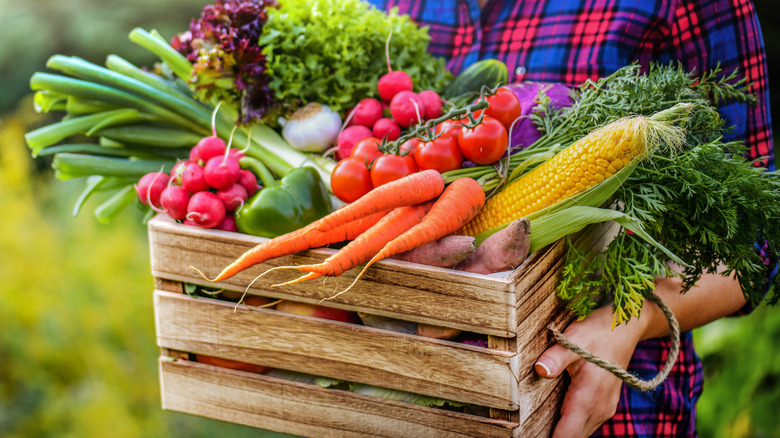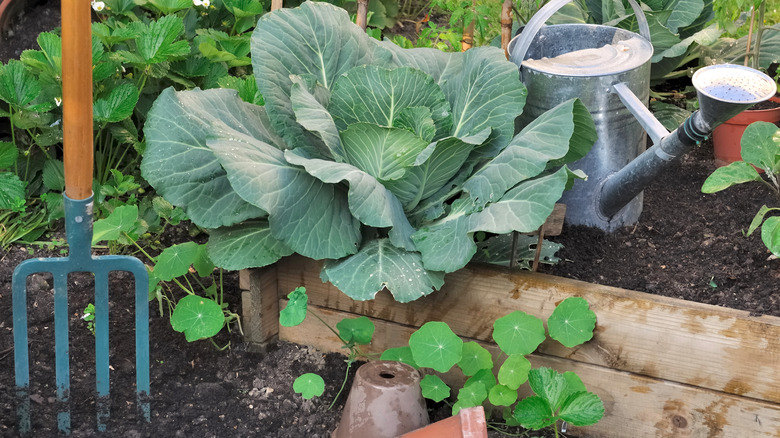The Florida Vegetable Ban You Had No Idea About
Growing vegetables may seem like a daunting and unnecessary task to gardening novices — why sweat for hours on end when you could simply drive to the local supermarket? However, despite this fear, there are plenty of easy vegetables to grow if you've never gardened before. Among these are beetroot, beans, potatoes, and radishes, according to GardenersWorld.com.
Inevitably, obstacles will be encountered no matter what gardening project you take on. Martha Stewart explains that yellow leaves, hungry caterpillars, and sunburn can affect plants. However, one problem probably isn't considered: weird state rules.
CNN reports that a couple in Miami Shores, Florida, were stopped from growing vegetables in their front yard due to a city ordinance prohibiting such activities. The plot had been tended to for almost 20 years but had to be completely dug up after officials threatened to issue $50 fines for every day the vegetables remained in place.
Understandably annoyed by the unusual rule, the gardeners took the authorities to court — but which side did judges choose to support?
Florida vegetables, the unlikely suspects
Opposing daily $50 fines for growing vegetables in their front garden, CNN reports that the couple decided to take on officials in multiple legal battles that lasted for six years. The case ultimately ended up in Florida's Third District Court of Appeals, which ruled in favor of the vegetable ban.
However, Florida's lawmakers weren't impressed with the court's decision. Sponsored by Senator Rob Bradley, a bill was put forward to clarify the legal position on growing vegetables in front yards, reports CBS Miami. It was eventually passed by legislators and made local bans on vegetables become void. It also committed to promoting "the cultivation of vegetables and fruits at all levels of production" (via The Florida Senate).
The original ban is particularly strange given the benefits of vegetable growing. Money believes that growing veggies in gardens is a far better solution to rising food costs and could save you money on store-bought food, and The Vegan Society argues that homegrown produce reduces plastic waste and carbon emissions.

